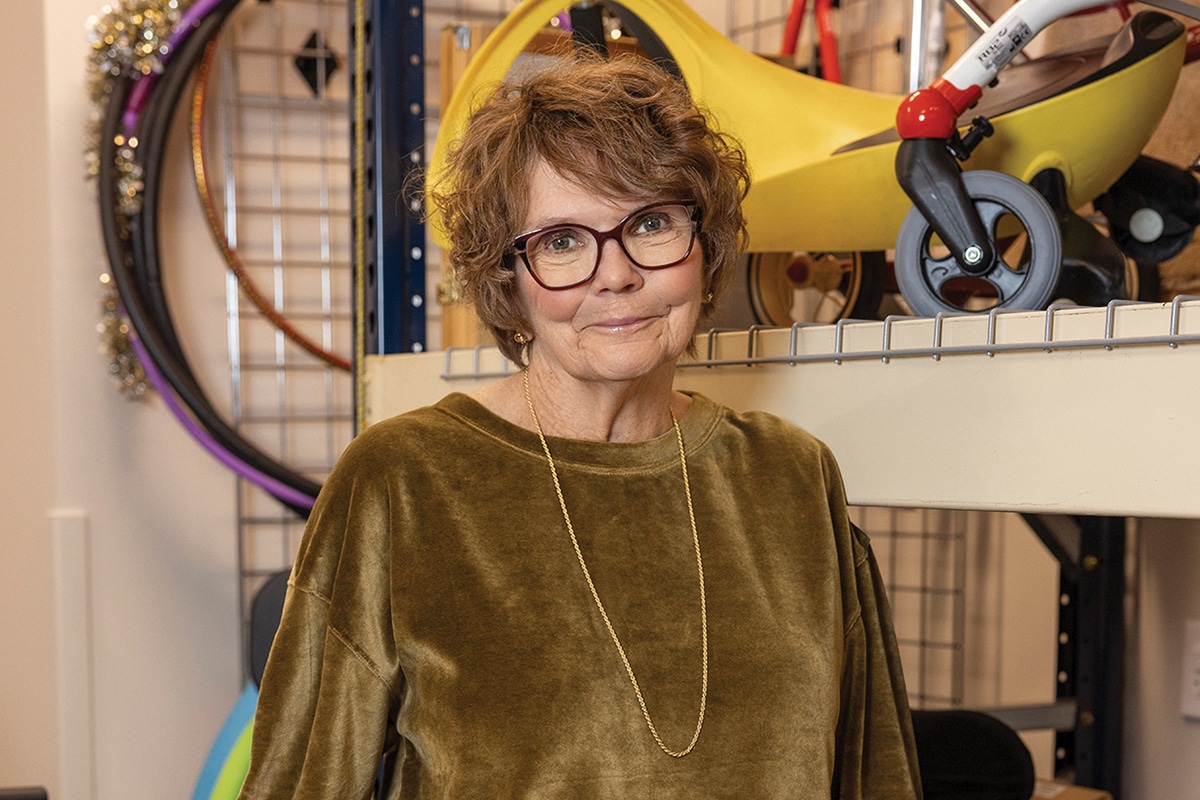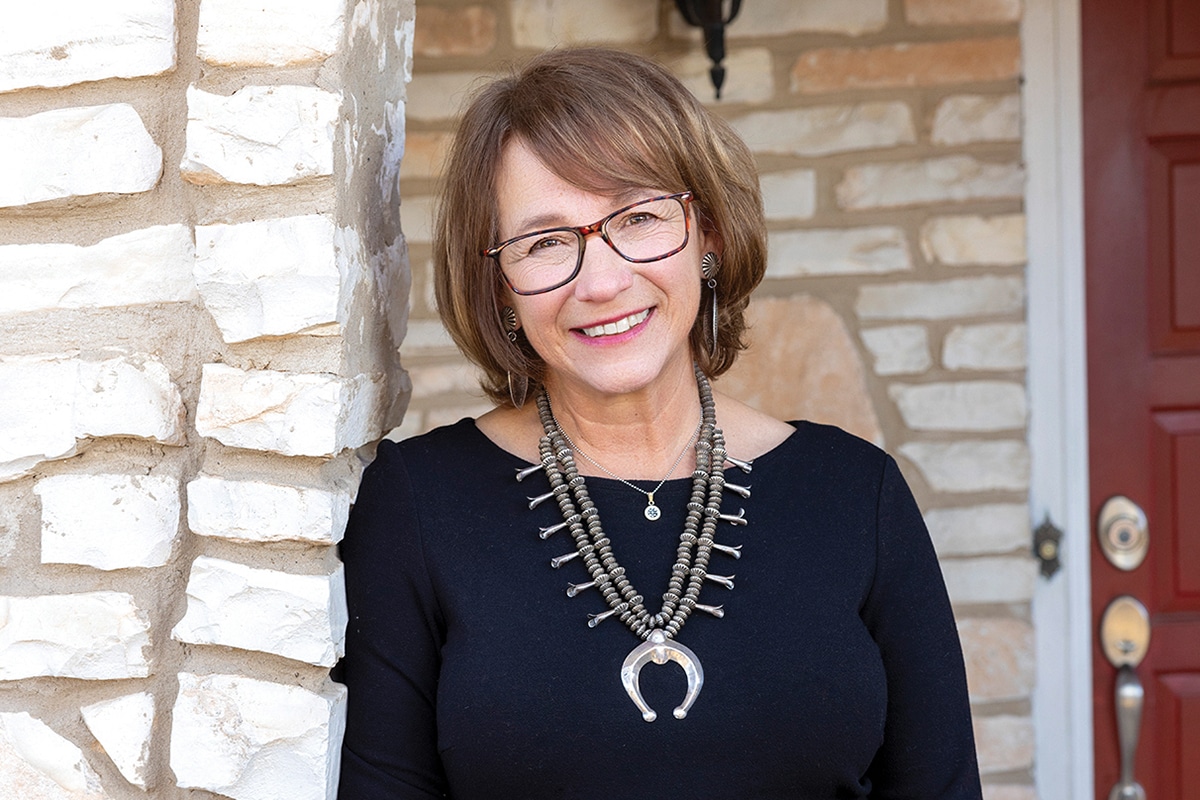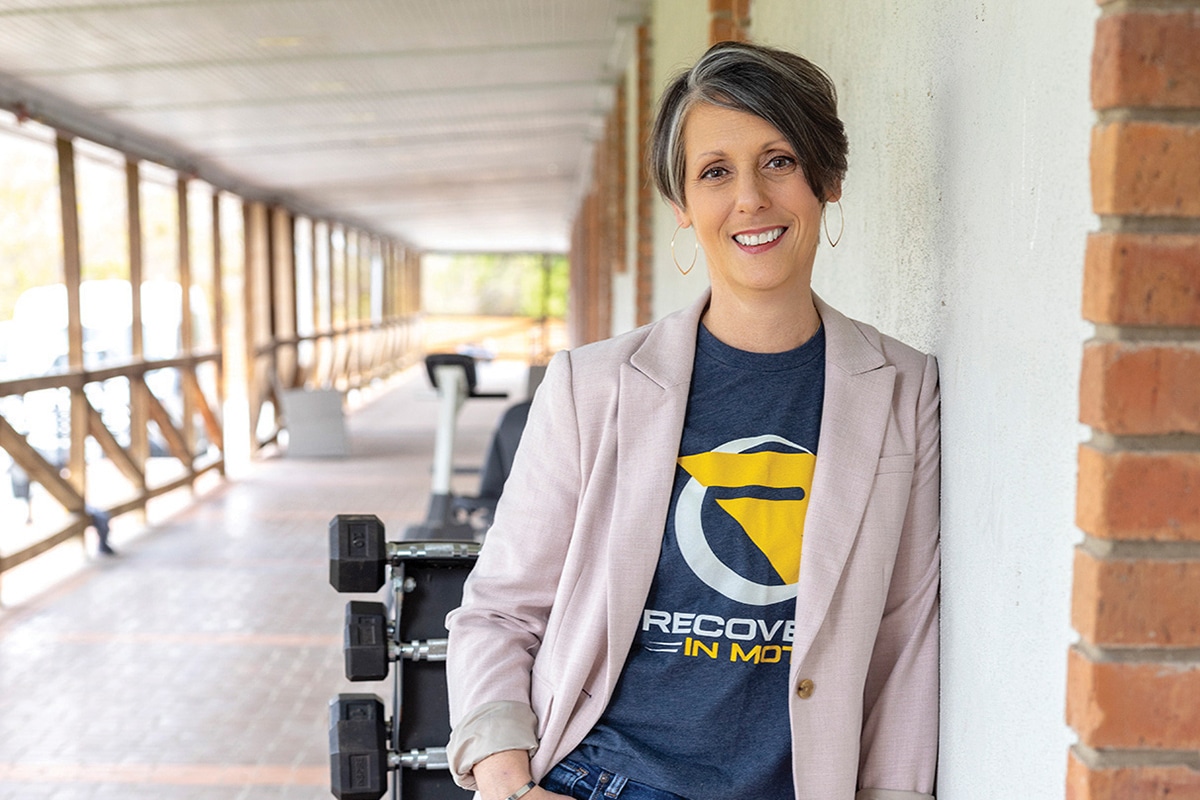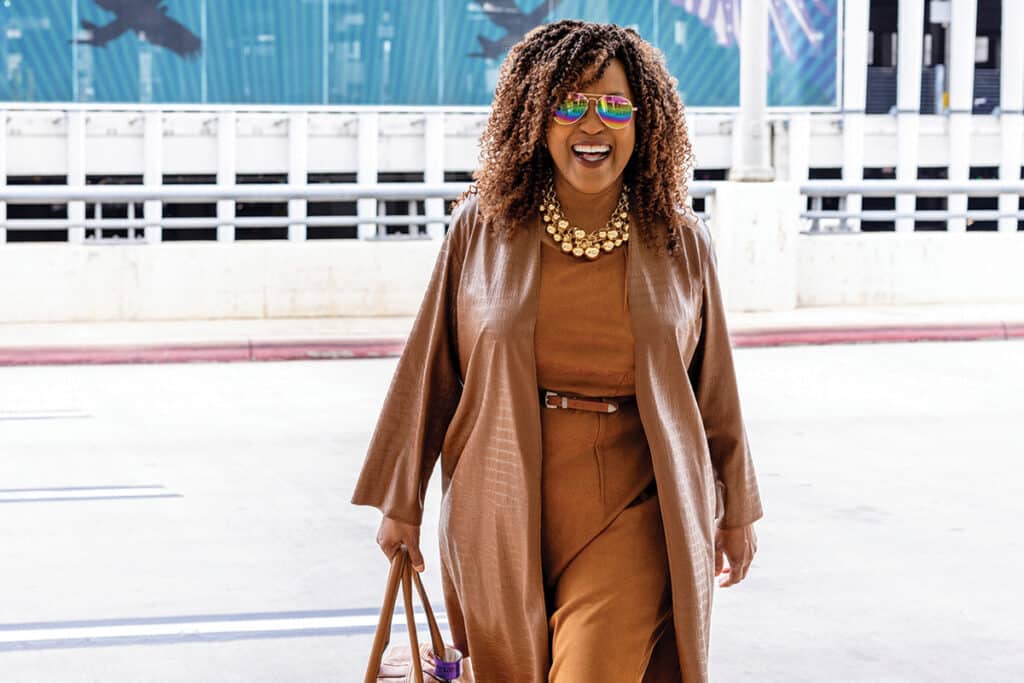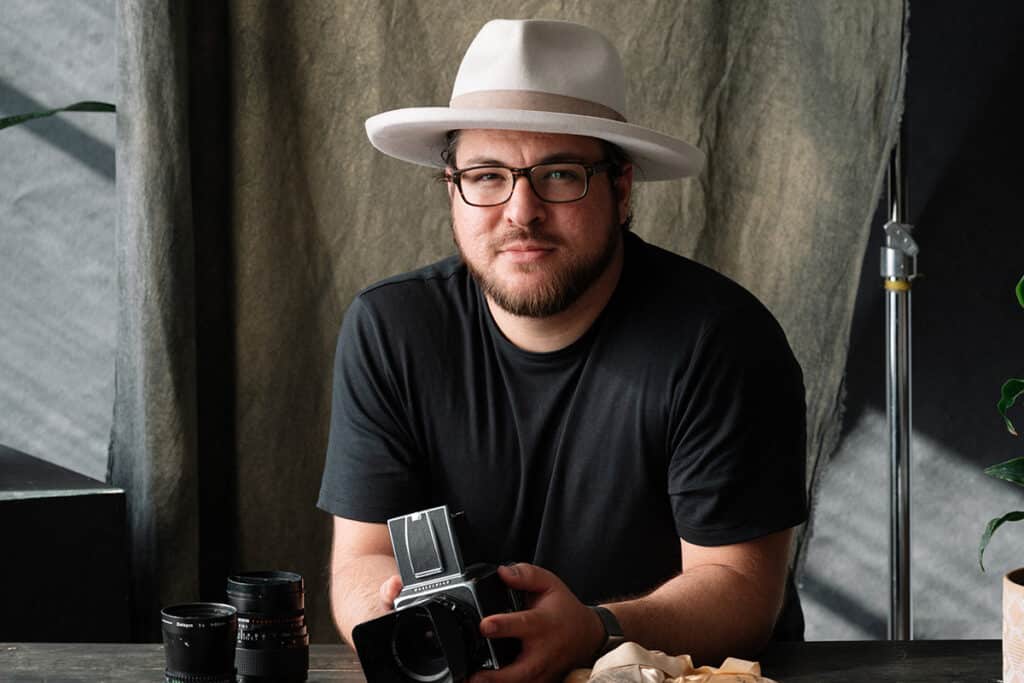Women Leading Change – San Antonio Visionaries
By Michelle Vasquez | Photography by Suzanne Pack
Women leaders make change look easy, but it’s not. It takes passion and leadership to create change in our communities. In San Antonio, Barbara Goldman of TeamAbility, Rev. Denise Barker of Magdalena House, and Jacquie Leath of Recovery in Motion make a difference for those afflicted with disabilities, victims of domestic violence, and substance abuse disorder. Each woman has led in founding a non-profit to impact these societal problems.
Barbara Goldman – Unlocking Potential at TEAMability
“It’s been over 20 years, TEAMability has been making an impact in the lives of children with severe and complex disabilities,” says Barbara Goldman, the founder. The core mission of this non-profit is to offer opportunities for children with disabilities to reach their potential because, in her words, “all children deserve that.”
A driving force behind the organization’s success is her belief in the potential of all children. Despite challenges like funding and professional training gaps, the organization fosters growth, collaboration, and a sense of community among staff and other non-profits.
Barbara started her career teaching the blind and visually impaired and took a hiatus to care for her family. A shift in client needs coincided with advancements in medical science, which increased the survival rate of children with severe disabilities. Barbara realized that the needs for the future would impact their methods.
An issue that arose was the importance of a team approach to optimize each child’s ability. Initially working within a single school district, she observed the limitations of working in silos and the transformative power of a multidisciplinary team involving occupational therapists (OT), physical therapists (PT), and speech therapists (ST). Her work at schools led to the creation of a non-profit in 2003, aiming to extend these services beyond a single school district to all children in San Antonio.
The non-profit grew rapidly, driven by a dedicated team and community support. TEAMability opened its first center in 2006 and expanded further. This growth allowed the organization to cater to various disabilities, including rare genetic disorders.
The organization provides therapies and emphasizes education and training, partnering with universities to offer practicums and internships for OT, PT, and ST students. They also focus on supporting families emotionally and working on helping them set realistic goals and expectations for their children.
The organization’s triumphs are evident in the significant improvements in the lives of the children they help. These successes are a testament to the organization’s commitment and the community’s support in recognizing the potential of children with disabilities.
Rev. Denise Barker – Empowering Women at Magdalena House
Rev. Barker, also known as Denise, created Magdalena House in 2007, focusing on educating and empowering women. Denise talks about their mission, “We walk with women for an unspecified period as long as they are willing to commit to the program of Magdalena House, which includes academics, living in the community, participating in events, and working on their emotional well-being.”
Denise, a minister at the United Methodist Church, reflects on her life and the motivation behind starting Magdalena House, a residential community for victims of violence. “I consider myself a feminist. I’ve always had a penchant for empowering women.”
Through the encouragement of others, she created the momentum to make Magdalena House a reality. “The number one advice my mentors gave me is you don’t do it alone.” Her board members are critical to advancing the organization’s mission. Their participation makes leadership essential to sustaining the organization. “Leadership is about believing in the people that work with you, hearing their ideas, and growing an individual into the best they can be.” Individual growth, however, must be balanced with the pragmatic aspects of managing a non-profit.
While the vision of Magdalena House stems from personal experiences, Denise emphasizes that though they are a non-profit, you have to run it like a business. “This philosophy is essential to keep my promises to those I’m committed to,” she says.
According to Denise, passion is the final element that provides the impetus for mission-led work. “From the ends of my fingertips to the tips of my toes, I believe women should be empowered and valued equally,” she says. Facilitating empowerment and value is at the heart of relationships at Magdalena House.
The community transforms the women and children who come to live there for generations. The transformation of these relationships now and in the future provides the most significant rewards of her work. “Without these relationships, I may never have had an opportunity to meet some of the women that I’ve met. They have changed me so much and enhanced my life culturally and emotionally. Transformation is bi-directional, and we are both forever changed,” she reflects.
Jacquilyn Leath – Cultivating Hope at Recovery In Motion
Jacquilyn Leath is no stranger to adversity. She has overcome obstacles from personal and familial substance abuse to cancer. Her ability to cultivate relationships has been pivotal to her success as a co-founder of Recovery in Motion, which she describes as “a fitness and nutrition-based non-profit that serves people affected by substance use disorder (SUD) and mental health.”
The non-profit was her husband Ty’s, brainchild, and she co-leads the organization in lockstep, building legitimacy in the community. “When you see somebody that you love come from a place where they were hopeless to a place where they have something that they want to do to give back to a community of people, and you understand that passion because you’ve had it, there is nothing more that I would rather do than to support his dream,” she says.
Everyone who comes to Recovery In Motion experiences the values guiding the organization to those in recovery: diversity, inclusivity, respect, and connection. These are just a few principles that make Recovery In Motion the organization it is.
Their passion has translated into successful programming. For example, their “Serenity Under the Stars” program supports those afflicted with SUD and their families by providing a weekend camping getaway designed to foster a community. Another program includes trauma-informed group fitness training. Trauma-informed fitness is unique to their organizational philosophy. The approach creates emotional and physical healing.
Jacquilyn was motivated to co-found the organization because of her love for her husband and his recovery, for the population they serve, and to enable a positive way forward. “Sometimes disadvantaged populations just need someone to tell them that they’re worth it, that they can do it, and that you’re going to love on them until they can love themselves, and that’s what Recovery in Motion is all about,” she says.
Leadership paves the way for motivation, and mentors are essential. Mentorship is about seeking out people who have proven themselves in the SUD community, can be trusted, and have pure intentions for the organization. The common goal is to see people supported, get services, and get well. The role of leadership is what keeps Jacquilyn coming back. “It fills my soul to know that the teams of people involved see the value in their work because they see lives changed.”

